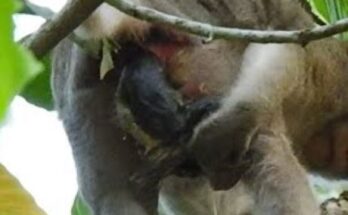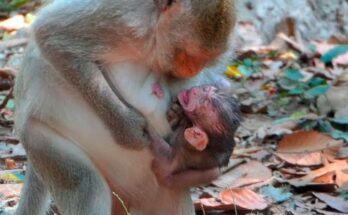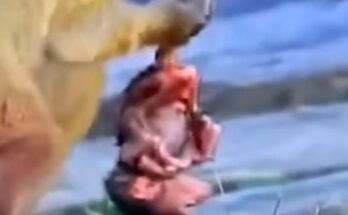In the wild, the behavior of animals, including monkeys, is often shaped by instinct and survival. A monkey mother may allow a paralyzed baby to be alone due to a combination of social, environmental, and instinctual factors.
First, primates, like other animals, prioritize survival and energy conservation. If a baby monkey is paralyzed, the mother might perceive it as having a reduced chance of survival. This is especially true in challenging environments where predators, limited food, and the need to keep up with the troop create intense pressures. Caring for an injured or incapacitated baby might jeopardize the mother’s ability to care for herself and any other offspring, as well as her ability to stay with the group.
Second, maternal instincts are not entirely unconditional. In many primate species, mothers exhibit behaviors that align with the greater success of their genes. If a baby is unable to thrive or contribute to the continuation of the family line, the mother may instinctually shift her focus to healthier offspring or future reproduction.
Additionally, there could be social factors within the troop influencing the mother’s behavior. In some cases, other members of the troop may reject or harm the injured baby, leading the mother to distance herself from it.
Finally, the mother’s decision might stem from the natural process of detachment when a baby’s condition becomes irreversibly compromised. While this may seem harsh from a human perspective, in the wild, these behaviors are often necessary for the survival of the individual and the group as a whole.
This situation highlights the complex interplay of survival instincts, environmental pressures, and social dynamics in animal behavior. While it can be heartbreaking to observe, such actions are often rooted in the harsh realities of life in the wild.


